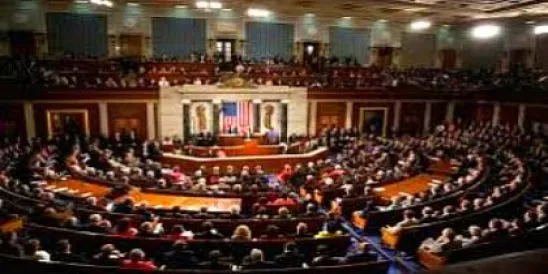On June 23, 2011, in a strong show of bipartisan support, the House of Representatives passed House Bill H.R. 1249 (titled the "America Invents Act"). The Bill, which passed 304-117, now moves into conference committee where managers from both the House and the Senate will meet to reconcile a number of relatively minor differences in H.R. 1249 and the related Senate Bill S. 23 (which passed overwhelmingly in March). Now, all indications point towards the Bill becoming law. Senator Patrick J. Leahy (D-VT), the primary sponsor of S. 23, has called his colleagues to "come together and approve [the] bill once again, and send it to the President's desk to be signed into law." And if the Bill reaches the White House, President Obama has pledged to sign it. That signature would usher in the most comprehensive change to U.S. patent law since Congress passed the 1952 Patent Act over half-a-century ago.
If passed into law, the America Invents Act would transition the U.S. Patent system from a first-to-invent system to a first-inventor-to-file system. The first-inventor-to-file system would give inventorship priority to the first individual inventor to file a patent application for a particular invention. That system follows the procedures already in place in Europe but would contrast sharply with the U.S.'s current system, which gives priority to the first inventor in some circumstances even if that inventor is not the first to file an application with the USPTO. The legislation would also add a new nine-month window for post-grant review of patent validity and reform the existing inter partes reexamination process into a new inter partes review process. With both post-grant review and inter partes review, the burden of proof on the challenger would be to demonstrate that the claims are invalid by a preponderance of the evidence, and the challenger would be precluded from raising similar grounds in an action for infringement in Federal Court.
As passed by the House, the legislation includes the following provisions:
- Transition from a first-to-invent system to a first-to-file system for determining priority of multiple inventors to the same or similar inventions (H.R. 1249, § 3; S. 23, § 2);
- Expansion of defense to infringement based on earlier inventor under 35 U.S.C. § 273 (H.R. 1249, § 5);
- Elimination of the best-mode-requirement challenge to the validity of a patent (H.R. 1249, § 15; S. 23, § 15).
- Prioritization of reviews for certain patents deemed critical to U.S. economic development (H.R. 1249, § 26; S. 23, § 23);
- Establishment of a transitional program to review granted business-method patents in light of the Supreme Court's recent decision in Bilski v. Kappos (H.R. 1249, § 18; S. 23, § 18);
- Formation of a new "first-window" post-grant, patent-opposition system with a shorter timeframe but broader jurisdiction than the current reexamination procedure (H.R. 1249, § 6; S. 23§ 5);
- Establishment of procedures for third parties to submit for consideration and inclusion in the record of a patent application, any patent, published patent, or other printed publication of potential relevance to the examination of the application (H.R. 1249, § 8; S. 23, § 7);
- Creation of a small-business ombudsman at the USPTO (H.R. 1249, § 25, S. 23, § 22);
- Modification of current bans on tax patents to allow patents for certain types of tax-return filing software (H.R. 1249, § 14; S. 23, § 14);
- Amendments to 35 U.S.C. § 292 restricting the availability of false-marking damages to the federal government and those persons who have suffered a competitive injury as a result of false patent marking (H.R. 1249, § 16; S. 23, § 2);
- Requirement that the USPTO disclose the amount of time it takes to conduct inter partes and post-grant reviews (H.R. 1249, § 6; S. 23, § 5);
- Provision allowing the USPTO to set its own fees (H.R. 1249, § 10; S. 23, § 9);
- Provision facilitating tracking of fee diversion from the USPTO to the U.S. general treasury by keeping funds collected by the PTO in a "Reserve Fund" that only allows release of such funds to the PTO "[t]o the extent and in amounts provided in appropriations Acts." (H.R. 1249, § 22 (complete elimination of fee diversion in S. 23, § 20));
- Set new fees for applicants that select not to use electronic filing methods (H.R. 1249, § 10; S. 23, § 9); and
- Establishment of three or more USPTO satellite offices (H.R. 1249, §§ 23-24; S. 23 § 21).
The historic House vote came after two days of floor debate where members of Congress challenged the constitutionality of the bill and attempted to strike key sections of the legislation, such as those provisions shifting the United States to a first-inventor-to-file system and the creating of a pilot program to examine business method patents. Most notably, the legislators adopted a controversial manager amendment supported by Representative Lamar Smith (R-TX) that keeps funds collected by the U.S. Patent and Trademark Office ("PTO") in a "Patent and Trademark Fee Reserve Fund" and allows release of such funds to the PTO only "[t]o the extent and in the amounts provided in appropriations Acts." (H.R. 1249, § 22). This differs from the Senate Bill's treatment of PTO fees which creates a "USPTO Revolving Fund" to ensure that the PTO retains control over all the fees that it collects. (S. 23, § 20). Stated differently, the House Bill would facilitate tracking of fee diversion while the Senate Bill would altogether eliminate fee diversion. With many high-profile supporters of the House Bill supporting the language in the Senate Bill, debate in conference committee is expected to center on the best mechanism for funding the PTO.
Despite several last minute changes, the Bill still has firm support in just about every camp. According to Representative Smith, "[t]he America Invents Act is the most significant jobs creation bill passed by Congress this year. No longer will American inventors be forced to protect the technologies of today with the tools of the past. . . . H.R. 1249 brings our patent system into the 21st century, reducing frivolous litigation while creating a faster and more efficient process for the approval of patents." The PTO also continues to support the Bill. Even in light of the House's less than favorable change to the funding provisions, PTO Director David Kappos stated that the PTO is "encouraged by the statements of so many members of Congress calling for the [PTO] to have full access to all of its fee collections." Full funding of the [PTO] is necessary for the [PTO] to successfully implement this legislation and to more effectively perform its core mission." According to Kappos, "[t]his bipartisan legislation will transform our patent system, enhance our nation's competitiveness and promote economic growth and job creation."
Our watchful eye now shifts to the conference committee where we await word of compromise and a final version of the bill to be signed into law by the President. Although anything is possible, it looks like the age-old myth of patent reform may soon become a reality.




 />i
/>i
